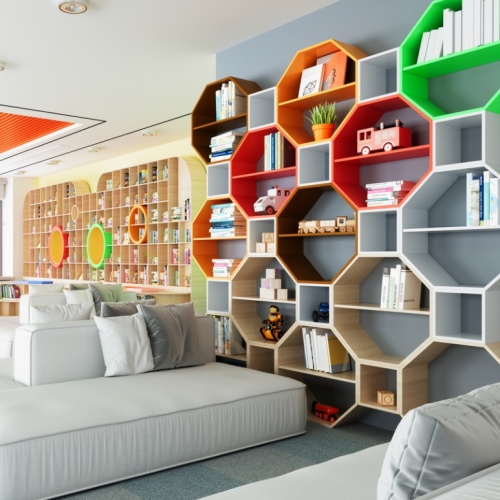News & Events
Winter Session Spotlight: Brooke Hollis on Change-making: Designing Healthy and Hospitable Environments

by Shelley Preston,
SCE News, November 21, 2023
Since Cornell’s Winter Session debut in 1975, thousands of students have had an opportunity to get ahead in their studies, catch up on coursework or learn something new while earning up to four credits Offered online this January, Winter Session once again gives students the chance to choose courses from a wide range of subjects in the arts, business, sciences and more.
A number of Winter Session courses, including “DEA 1112: Change-making: Designing Healthy and Hospitable Environments,” have become favorites with not only Cornell students but also visiting undergrads and high school students enrolled in the School of Continuing Education (SCE) Precollege Program. The design course will be offered again this Winter Session, Jan. 2-19, 2024.
DEA 1112 explores how design innovations can have a positive impact on the everyday life of people in hospitality, health care and senior housing areas. It also helps students explore possible careers. One of the course’s instructors, Brooke Hollis, the executive-in-residence at the Sloan Program in Health Administration at the Cornell Jeb E. Brooks School of Public Policy, shared more about what students can expect from taking the course this winter.
Who is the ideal student for "Change-making: Designing Healthy and Hospitable Environments"?
The ideal student is someone interested in exploring the intersectionality of health, hospitality and design. DEA 1112 is an introductory course open to designers and non-designers alike. No artistic abilities are required. This is an opportunity to explore ways of applying design thinking, customer service and facility planning/design to impact future personal and work environments.
What do you enjoy about teaching this course?
I, along with the other instructors, Nooshin Ahmadi, an architect and researcher in Human Centered Design at Cornell Human Ecology, and Heather Kolakowski, executive director of the Center for the Cornell Institute for Healthy Futures at Cornell SC Johnson College of Business, love learning from the students and hearing their perspectives on problem solving. Students also learn the instructors’ areas of expertise. We’re fortunate to have a multi-disciplinary team of faculty: An experienced architect teaching design thinking, a Nolan Hotel School faculty member with expertise in customer experience and operations, and my background as an MBA with a Sloan health management certificate and master’s degree in architecture. We have many years of work experience between us and enjoy sharing our applied ideas. Similarly, we enjoy seeing our students develop their own creative ideas, which is very gratifying.
What do you hope your students come away with by the end of the course?
Students emerge with new skills and a fresh perspective on how design can elevate our moods, extend our lifespans and help affect positive change. The students also get to tap into my faculty teammate’s certification in Myers-Briggs. Heather Kolakowski helps students explore how their Myers-Briggs personality test results might help inform their plans for future work. Finally, the group project presentation is a great opportunity for student teams to take what they learned from the three weeks to develop a creative solution to a design problem—students have reported that this exercise was very rewarding. One of our former students, Matt Epstein, who took the class as a high school student and is now a student at the Nolan Hotel School, said this about the class, "It prepared me for an internship and taught me how hospitality, design and healthcare can create a better environment for patients and their guests. It also opened my mind up to design-thinking and creative problem-solving in organizations."
What should students know about taking a three-credit course in just three weeks during Winter Session?
All Winter Session courses are fast paced. Learning 15 weeks of content in a three-week session can be challenging. Keeping up with reading and assignments means daily attention to work after the lecture period. It is also important to have a good internet connection! While the material is very concentrated, it’s a great opportunity for students to learn about skills and topics that they might not otherwise get to explore due to competing priorities of their major/minor during the normal semester. DEA 112 can also be used towards the Healthy Futures minor, sponsored by an innovative collaboration between the Cornell Nolan School of Hotel Administration, the Cornell SC Johnson College of Business, the Cornell Brooks School of Public Policy and Human Centered Design at Cornell Human Ecology.
-------Cornell students have until January 2 to enroll in "DEA 1112: Change-making: Designing Healthy and Hospitable Environments" or dozens of other online, three- and four-credit courses in subjects including animal science, the arts, business and management, government, language, the sciences, physical education and more. Visiting students and Precollege students have until Dec. 4 to register for Winter Session.



